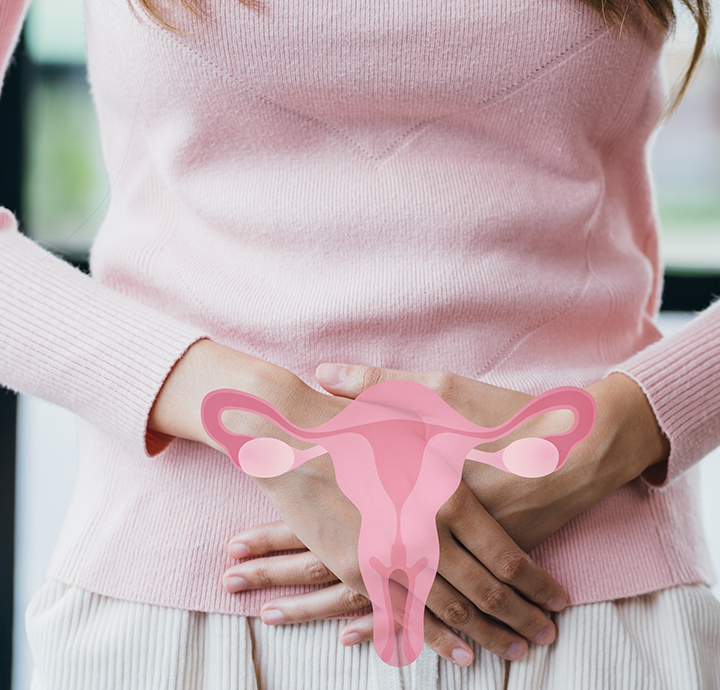
Pregnancy covers a period of approximately nine months during which the fetus develops in a woman's body. The pregnancy process usually begins with symptoms when the menstrual period is delayed and triggers physical and emotional changes along with hormonal changes in the body.
During the pregnancy, the expectant mother should go to regular doctor check-ups, maintain a healthy lifestyle and pay attention to her nutrition. Birth comes at the end of the pregnancy and can occur as a vaginal birth or cesarean delivery. Important precautions must be taken for the health of the mother and the baby during birth. During the postpartum period, baby care begins while the mother's body recovers.
Pregnancy processes begin from the moment the fertilized egg, which is formed as a result of the union of a woman's reproductive cell, the egg, and a man's sperm cell, settles into the uterus. The first trimester (first 3 months) of pregnancy is considered the embryo period, and while the fertilized egg settles in the uterus, the formation of basic organs begins. The second trimester (4-6 months) is one of the periods in which expectant mothers are most comfortable and the fetus develops the most among the stages of pregnancy. During the third trimester (7-9 months), the fetus continues to grow rapidly, the expectant mother is prepared anatomically and physiologically for the birth process, and final preparations are made. However, for a healthier process, it is recommended that both expectant mothers and fathers who want to have a child visit a specialist before the pregnancy begins, in order for the baby to come to the world in a healthy way and for the mother to have a problem-free pregnancy.
A healthy pregnancy usually lasts around 9 months and 10 days, or 280 days. Long pregnancy periods can sometimes extend up to 42 weeks and this is called late pregnancy. These longer processes mean that babies need more time to fully develop. Although long pregnancies are rare, doctors monitor this condition closely. The shortest pregnancy periods usually last 37 weeks or less. This condition is called premature labor or preterm birth and can lead to prematurity. Prematurity requires special attention as some of the babies' organs may not be fully developed or may cause some health problems.
Is Polycystic Ovary an Obstacle for Pregnancy?
Polycystic ovary syndrome (PCOS) is a condition that affects a woman's reproductive system and can affect pregnancy for some women, but it does not affect all women the same way. Women with PCOS may have a reduced chance of becoming pregnant, but the condition can be treated and pregnancy may be possible.
PCOS is a hormonal imbalance that inhibits follicle development in the ovaries and causes symptoms such as irregular menstrual cycles, anovulation (lack of ovulation), and insulin resistance. These factors may reduce the chances of pregnancy. However, many women can still have children. Both mother and baby may not experience health problems, with or without treatment, despite their PCOS condition. Treatment options include weight control, lifestyle changes, and sometimes medications.
Healthy nutrition during pregnancy is very important for the baby to be born healthy and for the mother to avoid problems. A balanced diet should include important nutrients such as protein, folic acid, iron, calcium and fiber. Protein is essential for babies' cell development and can be obtained from sources such as meat, chicken, fish and dairy products. While folic acid helps prevent neural tube defects, iron reduces the risk of anemia and calcium contributes to the bone development of babies. Additionally, fiber consumption prevents constipation. Adequate fluid intake should not be forgotten during pregnancy. It is also important to avoid dangerous foods and control portions. The option of having a diet suitable for you by consulting your doctor is the most ideal option.
Normal birth and cesarean section are the preferred birth methods depending on the needs and conditions during the pregnancy. Normal birth is a natural process in which the baby is born vaginally. Caesarean section is a procedure in which the baby is surgically removed from the mother's womb. This method is used when there are risks to the mother or baby or when normal birth is not recommended. The recovery process after cesarean delivery is usually longer compared to the recovery process after normal birth. Cesarean birth may also be preferred for psychological reasons because a decision should be made accordingly, taking into account whether the person decides to become a mother through normal birth or cesarean section.
The main things that need to be done to protect both the baby's health and the mother's health during pregnancy are as follows:
Prenatal vitamins should be taken regularly and doctor's recommendations should be followed.
A balanced nutrition program should be created and healthy foods should be consumed.



Ovarian cysts are fluid-filled sacs or vesicles seen inside the ovary. Normally, during each menstrual period, a cyst called a follicle, which carries the egg cell and can reach 3 cm in size, forms in the ovaries. Then this cyst cracks and the egg is released. In young girls with ovulation problems, normal or physiological follicle cysts that cannot rupture can grow every month and reach 5-10 cm, while small numbers of 0.5-1 cm in size, which we call polycystic ovaries, can be seen in series. Apart from these functional cysts, benign or malignant ovarian cysts can also be seen in all age groups.
Except for the most common functional ovarian cysts, cysts can be benign or malignant tumoral cysts. In addition, as a result of infection, abscess-shaped cysts may occur, which is usually accompanied by pain and high fever.
The activity of these cells can increase or decrease during pregnancy. A balanced immune response is important for a healthy pregnancy.
These lymphocytes work to recognize other cells in the body and detect and neutralize foreign ones. However, sometimes NK cells can mistakenly recognize their own body cells as foreign and attack them. This leads to autoimmune diseases because the immune system should normally tolerate body cells.
Natural killer cells can recognize and neutralize target cells through antibodies. Antibodies can be said to facilitate this connection.